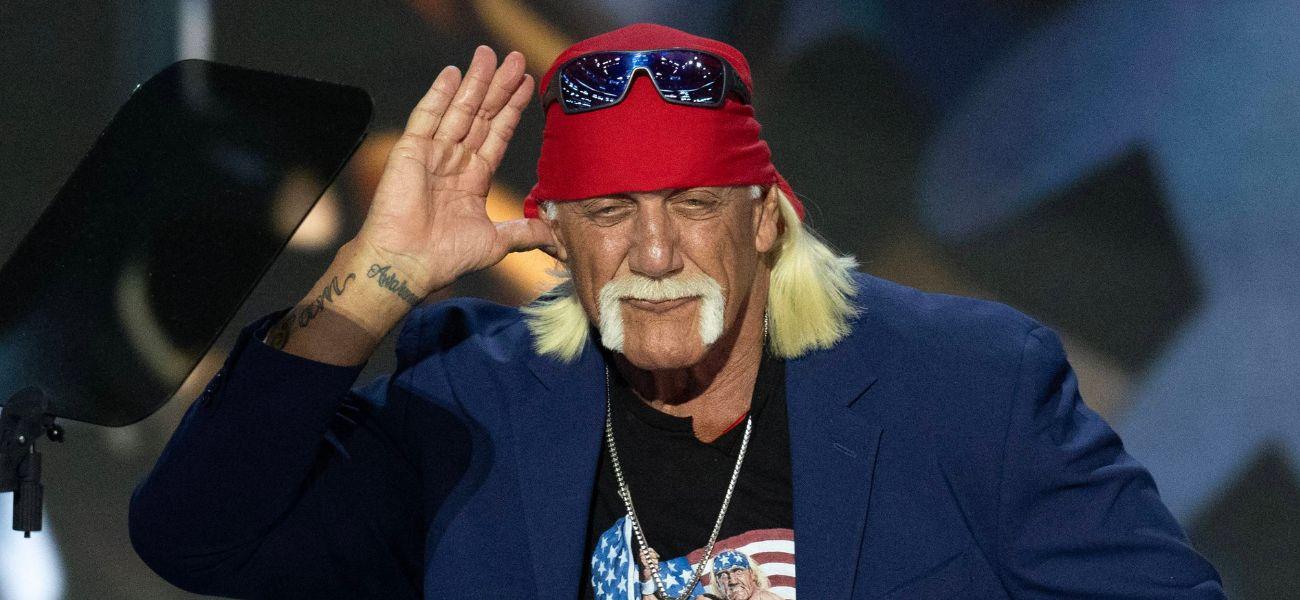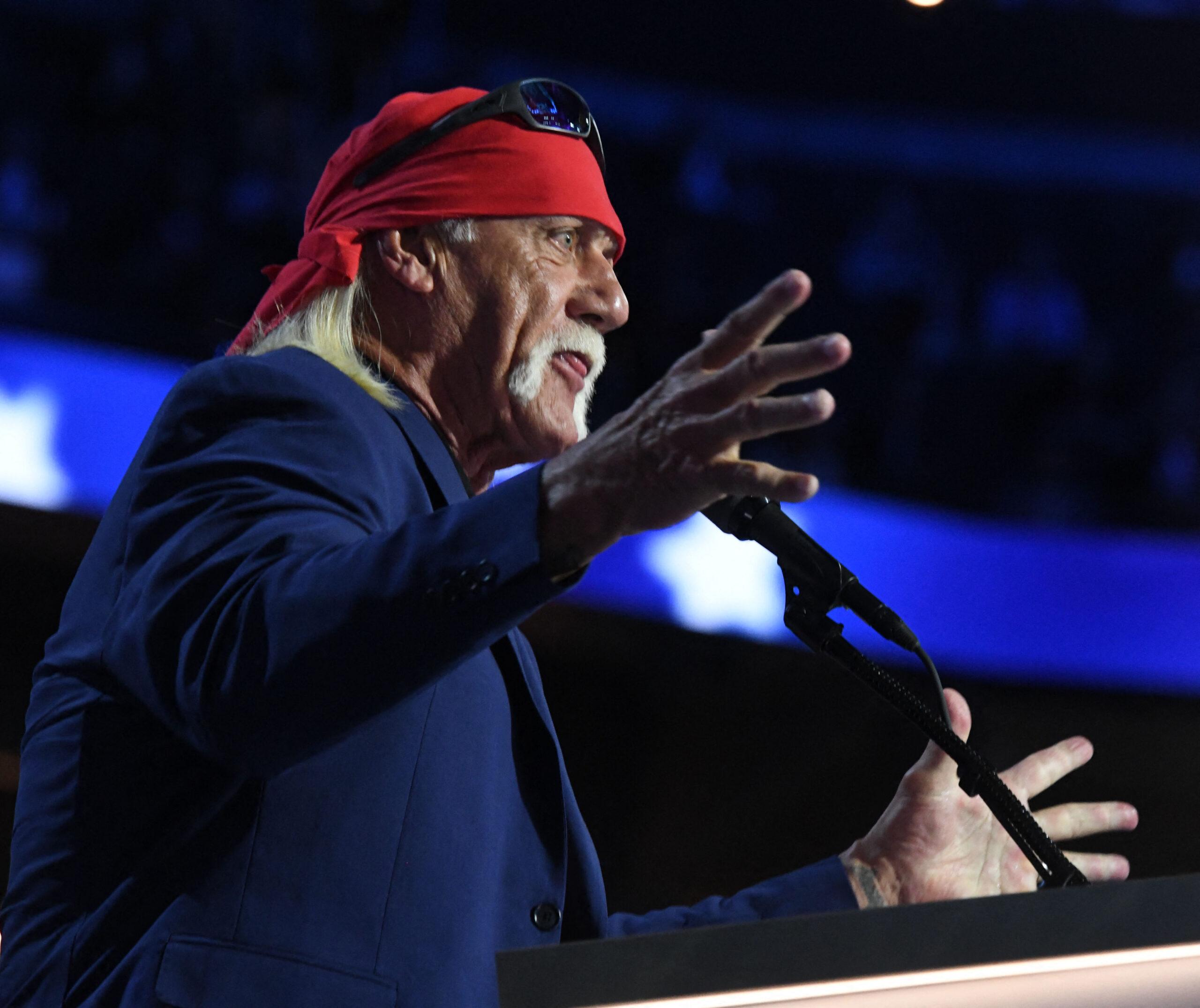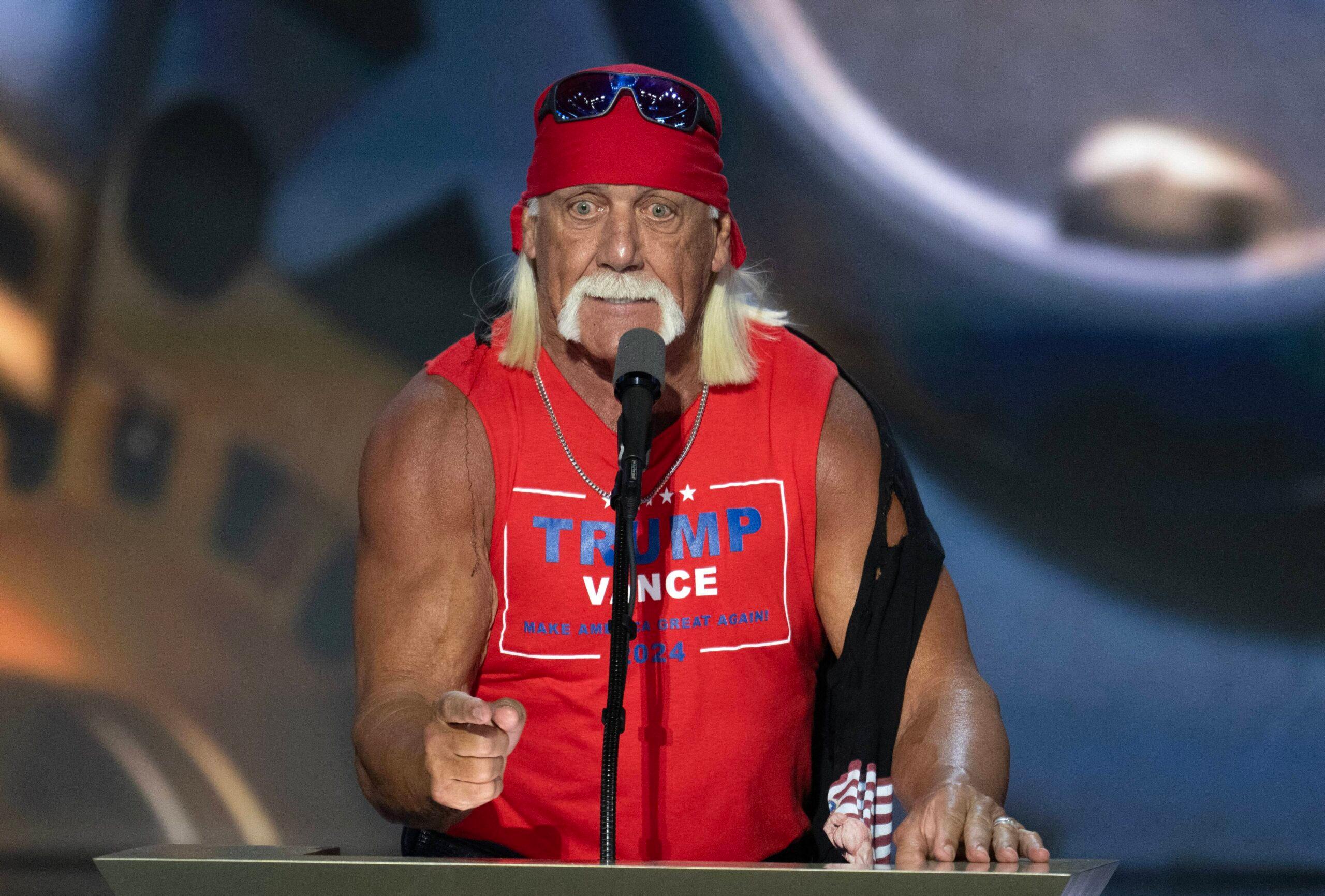Wrestling Icon Hulk Hogan Dead At 71 Weeks After Coma Rumors
By Kelly Coffey-Behrens on July 24, 2025 at 11:55 AM EDT
Updated on July 24, 2025 at 1:41 PM EDT

Hulk Hogan, the face of professional wrestling for decades, has died at the age of 71.
Emergency medical services were dispatched to Hogan’s Clearwater, Florida, home early Thursday morning after receiving a report of cardiac arrest.
Witnesses say multiple police units and EMTs were seen outside the residence, and Hulk Hogan was transported by stretcher into a waiting ambulance.
Hulk Hogan Has Passed Away

The heartbreaking news comes just weeks after Hogan’s wife, Sky, publicly denied rumors that the wrestling icon was in a coma, assuring fans his heart was “strong” and that he was steadily recovering from a recent medical procedure. In May, Hogan had undergone neck surgery, which insiders said led to some lingering complications that sparked concern about his condition.
Whispers began circulating last month that the WWE Hall of Famer was on his “deathbed,” but at the time, sources insisted he was simply dealing with the aftereffects of surgery, not in critical condition.
Hogan had long been open about the toll decades in the ring took on his body. Just last year, he revealed in an interview with YouTuber Logan Paul that he had endured at least 25 surgeries between 2014 and 2024 alone.
“I’ve had like 25 surgeries in the last 10 years,” he said. “I’ve had 10 back surgeries, both knees and both hips replaced, shoulders, everything.”
The Icon Who Took Wrestling Mainstream

Known for his charisma, signature mustache, and electrifying presence in the ring, Hulk Hogan, real name Terry Bollea, became a household name in the 1980s and 90s, helping catapult WWE (then WWF) into mainstream superstardom.
With his signature handlebar mustache, red-and-yellow ring gear, and larger-than-life charisma, Hogan helped transform professional wrestling into mainstream entertainment during the 1980s and beyond.
As the face of WWE’s golden era, he inspired millions with his "say your prayers and eat your vitamins" mantra, becoming a hero to young fans worldwide. His larger-than-life persona inspired generations of fans, and his catchphrases, from "Whatcha gonna do when Hulkamania runs wild on you?" to "Brother!" became part of pop culture history.
Beyond the ring, Hogan became a fixture in movies, reality TV, and endorsements, solidifying his status as one of the most recognizable and influential figures in sports entertainment history.
Hulk Hogan’s Past Struggles With Prescription Drug Use

Long before his tragic passing at 71, Hogan had opened up about some of the darkest chapters in his life, including a painful battle with prescription drug addiction that nearly cost him everything.
In candid interviews over the years, the wrestling icon revealed that he became heavily dependent on painkillers and muscle relaxers following decades of physical punishment in the ring.
“I was hitting the pain pills hard because I’d had to endure 25 procedures, including 10 to my back, facial operations from being kicked, knee and hip replacements and abdominal and shoulder surgeries,” the wrestler told Muscle And Health.
Hogan Opens Up About Past Steroid Use And Darkest Days

The pain wasn’t just physical. Hogan also admitted that the emotional toll of his divorce, mounting legal troubles, and the near-fatal car crash involving his son Nick pushed him to the brink. During that time, he admitted to having suicidal thoughts, saying the combination of grief and dependency left him in a place of complete despair.
In the 1990s, Hogan also acknowledged past steroid use during the peak of his wrestling career, something that was widespread in the industry at the time and legal until federal crackdowns began in the late ’80s.
During Vince McMahon’s 1994 steroid distribution trial, Hogan testified that he had used anabolic steroids but emphasized that they were not provided or encouraged by the WWE.
Hulk Hogan Found Strength Beyond The Ring After Battling Addiction

Thankfully, the wrestling legend was able to pull himself out of that dark chapter.
Hogan credited his faith, supportive friends, and a renewed focus on family for helping him get clean and rebuild his life. In later years, he adopted a healthier lifestyle and worked to promote positivity, often speaking about the lessons he learned through his struggles.
While he’ll always be remembered as the face of Hulkamania and one of the most electrifying performers in wrestling history, Hogan’s vulnerability about his off-camera battles revealed a different kind of strength, one that resonated deeply with fans who saw him as larger than life.
The news of Hogan's death was first reported by TMZ.
Rest in peace.